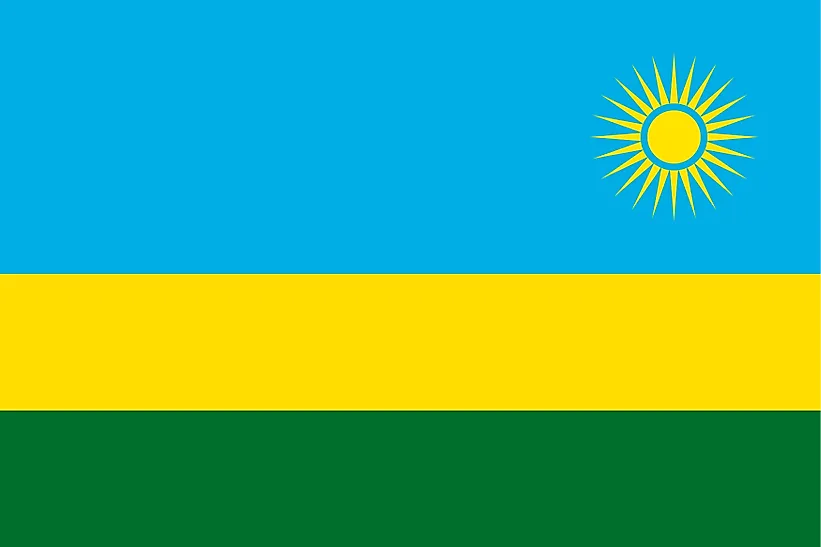
Rwanda
| Continent | Africa |
| Capital | Kigali |
| Population | 12,988,423 |
| GDP | $21.97 Billion |
| GDP per Capita | $1,900 |
| Dialing Code | +250 |
| ISO Code (2-letter) | RW |
| ISO Code (3-letter) | RWA |
Rwanda Landscapes






About Rwanda
Welcome to Rwanda, a nation of remarkable transformation and natural beauty. With approximately 13 million people occupying 26,338 square kilometers, Rwanda combines remarkable development progress with rich cultural heritage, standing as one of Africa’s most dynamic nations.
Geographic Features and Natural Beauty
Rwanda’s geography encompasses rolling hills and mountains, earning its nickname “Land of a Thousand Hills.” The country features volcanic mountains in the northwest, including the Virunga range, home to endangered mountain gorillas.
The landscape includes Lake Kivu, numerous rivers, and verdant tea plantations stretching across hillsides. The country’s varied altitude creates diverse microclimates supporting unique ecosystems.
Protected areas include Volcanoes National Park, Nyungwe National Park, and Akagera National Park, protecting diverse wildlife including primates and birds. The country’s commitment to environmental protection focuses on conservation and sustainable tourism.
Cultural Heritage and Traditions
Rwandan culture represents a rich heritage centered around community and tradition. The country’s cultural practices include distinctive dance forms, particularly the Intore dance, and traditional crafts.
Traditional arts include imigongo (geometric art), basketry, and pottery. Cultural expressions feature music and dance performances, while storytelling remains an important means of passing down history.
Rwandan cuisine features dishes based on plantains, sweet potatoes, and beans, with specialties like isombe (cassava leaves with eggplant and spinach). The tradition of community work (umuganda) and sharing remains central to social life.
Historical Journey
Rwanda’s history spans from ancient kingdom through colonial period to modern renaissance. The country has emerged from tragedy to become a model of reconciliation and development.
Significant periods include the pre-colonial monarchy, German and Belgian colonial rule, independence in 1962, the 1994 genocide, and subsequent rebuilding and reconciliation. The country’s journey of healing and progress has shaped its modern identity.
Modern Economic Landscape
Today’s Rwandan economy focuses on services, agriculture, and technology. The country has earned recognition for its business-friendly reforms and digital initiatives.
Recent initiatives emphasize innovation, green growth, and gender equality. Rwanda’s strategic location and stability support its position as a growing business hub.
International Relations and Global Position
Rwanda maintains active participation in regional and international organizations while fostering partnerships for development. The country’s progress in reconciliation and development extends its influence.
Did You Know?
• Rwanda has one of the highest percentages of women in parliament globally?
• The country banned plastic bags in 2008, one of the first countries to do so?
• Kigali is often recognized as one of Africa’s cleanest cities?
• Rwanda is one of only three countries where mountain gorillas can be found in the wild?
Conclusion
Rwanda represents a remarkable story of transformation and resilience. From its rolling hills to its modern capital, from its traditional customs to its innovative policies, Rwanda continues to evolve while preserving its cultural identity. As it addresses challenges including sustainable development and continued reconciliation, Rwanda remains committed to its vision of becoming a middle-income country while maintaining its commitment to inclusive growth.